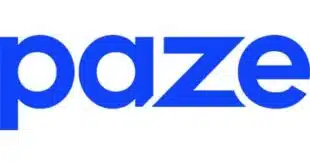Small-ticket electronic transactions, particularly those at unattended machines, may get a boost with a proposal that would relax a provision of Regulation E regarding receipts for consumers. The Federal Reserve Board this week requested public comment on the proposal, which would exempt transactions of $15 or less from Reg E's requirement that consumers receive receipts for all electronic-funds transfer transactions they perform at what the Fed calls electronic terminals. The comment period runs for 60 days. Card networks like Visa USA hope the proposal, if approved, will make small-value debit card transactions at places like vending machines, parking meters, and mass-transit turnstiles more practical. The receipt requirement, Visa says, forces banks and merchants to install receipt printers whose costs, including maintenance, offset any sales gains from card acceptance. Visa also argues customers in such situations generally do not expect to get a receipt. “Visa has been working with the Fed for months to get this rule relaxed,” said Stacy A. Pinkerd, senior vice president for consumer debit products at the San Francisco-based association, during a presentation he gave on Tuesday at a micropayments conference in New York. “That [receipt requirement] has been a big barrier, in particular for unattended [venues].” In a document in which it sets out its proposed rule change and asks for comment, the Fed notes that the original intent of the receipt requirement was to give consumers proof of payment, something akin to a canceled check. It also notes that Congress, whose Electronic Funds Transfer Act was implemented by the Fed with Reg E, hoped the requirement would help consumers track purchases. Now, however, the Fed says it is proposing the change to make possible small-ticket electronic transactions that would otherwise be impractical. “While receipts may be important for consumers for moderate-to-high-value transactions, the board believes that receipts are less significant for transactions of relatively small amounts because consumers are less likely to retain them for proof of payment or for account-management purposes…” says the Fed document. “Moreover, consumers will continue to receive a record of each transaction on monthly periodic statements.” The document also says consumers retain the right to dispute erroneous transactions. The proposed rule change would cover both signature and PIN-based transactions, says the Fed, as well as deposits of $15 or less in ATMs, though it expects banks to continue dispensing receipts for ATM transactions. The $15 threshold, the regulator says, allows for price inflation over time while also giving receipt coverage to transactions of what it calls moderate-to-high value. Parking, vending, and coin-operated machines together represent $37 billion in annual spending, according to a Federal Reserve Bank of Philadephia report, a market Visa and other card networks are eager to penetrate. Currently, cards control just 1% of the $1.4 trillion spent on cards and with cash on transactions under $25, according to figures from Visa and researcher TowerGroup. Yet, just over one-third of consumers are willing to use cards for transactions under a much lower threshold–$5, according to a 2006 survey sponosored by micropayments processor Peppercoin Inc. In his presentation at the micropayments conference, which was co-sponsored by Peppercoin, Visa's Pinkerd exhorted an audience made up of merchants, service providers, processors, and bankers to file comments in favor of the proposed change. “The more positive comment the Fed gets, the greater the chance they'll change the rule,” he said. “I guarantee you Visa will be very vocal in this space.”
Check Also
Cyber Weekend Sales up 5.7%, Fiserv Says and other Digital Transactions News briefs from 12/6/24
Same-store sales volume rose 5.7% and transactions were up 6.7% during the days from Nov. …




